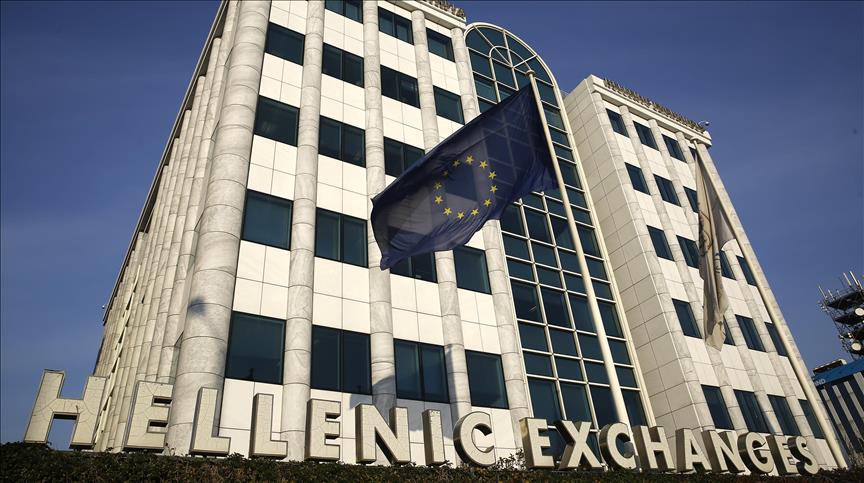Effect of Greece's capital controls one year on
Difficult to guage how restrictions on cash movements have affected economy, analysts say

By Magda Panoutsopoulou
ATHENS
A year has passed since the imposition of capital controls on Greece that Prime Minister Alexis Tsipras had hoped would end austerity and “bring back dignity to the Greek people”.
Instead, despite recent signs that the restrictions on cash transactions could be eased, the 12 months have seen the country brought to a standstill, witnessed chaos in the banking system and the stock exchange and caused distress to ordinary people forced to queue at ATMs to withdraw a daily maximum of 60 euros ($66).
June 29 last year saw the banks shut for the first time since the 1967-74 junta and the stock exchange remained closed until the referendum a week later offered Greeks a say on the bailout being offered by creditors.
Overwhelmingly, they rejected the creditors’ bailout with a “No” to the proposed austerity measures. However, austerity followed nonetheless.
“Capital controls have been very disruptive since they were imposed a year ago,” political analyst George Kratsas said. “They have primarily affected companies that import goods and services as such companies have not been able to export funds to pay for these goods and services.
“They have also particularly affected companies listed in the Greek stock exchange as well as investment firms that rely on the local investments. Moreover, they imposed added difficulties on companies that planned to transfer their seat abroad, unless such companies had already established foreign bank accounts.”
Alexia Koufopandelis, an investment advisor, told Anadolu Agency that the capital controls had “touched very severely the financial industry in Greece and it has been a one of the worst years for the Athens stock exchange since its establishment.”
She added: “Greek investors can only make investments with money that was already invested in securities before that date or with money coming from accounts held abroad.
“Money that was already in the banking system before that date is considered ‘old money’ and cannot be used for investment or in the Greek exchanges, nor for foreign trading.”
According to Koufopandelis, the Greek stock market suffered as international players and hedge funds liquidated their positions and could not be replaced by Greek investors who could not buy stock, resulting in Greek companies collapsing as their market value lost up to 90 percent of their value in three days.
A year on and despite the promises of the left-led Tsipras government, capital controls have left the economy in tatters.
Lower spending
“One year on from the imposition of the capital control mechanism in Greece, we are seeing lower consumer spending, which is inherent with this mechanism, lower business creation and the deterioration of existing businesses, while [there is] a decreased level of imports,” John Wills, general manager at the RoarForex consultancy, said.
“Businesses have to keep higher equity margins, while also suffering from unfavorable trade terms with fellow European counterparts. Greece, which is a country which has predominantly been used to paying for goods and services in cash, now has to conform to European standards of electronic methods of payment in order to cover expenses higher than the limit of 420 euros [$464].”
On Monday, the governor of the Bank of Greece, Yiannis Stournaras, announced a plan to relax capital controls with measures including lifting the bans on withdrawing cash for new cash deposits and repaying loans.
The proposals would also allow savers to withdraw up to 840 euros ($929) every fortnight -- double the current level -- and accelerate the approval of bank transfers abroad by increasing the maximum amount to 350,000 euros ($387.200) from 250,000 euros ($276,570) per customer per day.
Wills said the plan would have a “small impact” but was a “step in the right direction”.
He added: “In the past there were higher levels of purchasing power, allowing households to digest numerous obligations and expenses, such as private insurance and some form of personal investment.
“This has decreased as consumers don’t have the same reserves as in the past, as taxes have increased and wages decreased, leading to a slow depletion of savings. It is shocking to see the how many uninsured cars there are circulating on Greek roads.”
However, Wills said the “shock of capital controls is now over” and people had become used to the 420 euros weekly limit although this had come at a cost to economic recovery.
“We must not forget the reason for this imposition, which was the apparent exodus of personal savings and capital to safer banks, which were not subject to political unrest,” he told Anadolu Agency.
According to Mirella Kolitsida, an operations manager in the shipping industry, the damage caused by capital controls “cannot be recorded yet”.
“Numerous enterprises face extreme financial problems and may be forced to close but the real economy will be affected in the long term,” she warned.
Anadolu Agency website contains only a portion of the news stories offered to subscribers in the AA News Broadcasting System (HAS), and in summarized form. Please contact us for subscription options.






